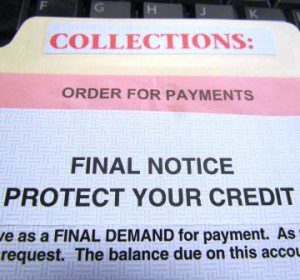
When a bankruptcy petition is filed, an automatic stay goes into effect immediately, ordering a stop to all collection activity with the force of a federal injunction. Later, when the bankruptcy court issues a discharge, the legal obligation to pay the debts terminates.
Bankruptcy stops collection activity.
But what if the creditor fails to take affirmative steps to stop a collection action already started?
Collection Action and Bankruptcy
In one case an oil company filed a small claims case based on an unpaid $2,500 debt. The company obtained a judgment against the debtor on June 12, 2012. When the bill remained unpaid, the company on July 12, 2012 filed a motion for periodic payments, a collection activity requiring the debtor to appear in the state small claims court and answer as to their ability to pay.
But the oil company did not realize that the debtor on July 6 filed a chapter 7 bankruptcy petition. Notice was not actually received by the company until July 25. Two months later, the state small claims court scheduled a hearing, and sent the oil company instructions to notify the debtor through the county sheriff.
But the oil company did nothing. When the hearing date came up in January, 2013, neither the oil company nor the debtor showed up. The small claims court ordered a bench warrant against the debtor.
Is Failure to Act a Discharge Violation?
The issue for the Bankruptcy Court was whether the oil company’s inaction by failing to withdraw the motion for periodic payments that it had filed in the small claims court violated the discharge injunction of bankruptcy law.
Bankruptcy Discharge Law
The U.S. Bankruptcy Code establishes the bankruptcy discharge, declaring that it:
“Operates as an injunction against the commencement or continuation of an action, the employment of process, or an act, to collect, recover or offset any such debt as a personal liability of the debtor …”
U.S. Bankruptcy Code Section 524(a)(2)
Generally, the bankruptcy discharge relieves debtors from pre-petition debt and permanently enjoins creditor actions to collect discharged debts. But Bankruptcy Courts have also found that:
“A creditors inaction can be tantamount to action”
Miller v. Sav. Bank of Baltimore – 1982 MD Bankruptcy Court
Bankruptcy Discharge Violation Where Creditor Does Nothing?
The oil company argued that it never committed any affirmative act with knowledge of the discharge order, that the discharge order failed to clearly set out precisely what conduct violates the order, and that it never acted in bad faith.
But the Bankruptcy Court found the oil company was in the best position to take affirmative steps to prevent the state court from holding the hearing which led to the bench warrant. Having filed the motion, the court found the oil company was “in the driver’s seat” and very much in control of what happened.
So, in the case of Stone v. Highlands Fuel Delivery, LLC, decided on March 31, 2014, the United States Bankruptcy Court for the District of New Hampshire held that the creditor’s “course of inaction” was insufficient to prevent the continuation of the Small Claims Action. Inaction, the court explained, can often be as disruptive as affirmative collection efforts.
For more on the nature of the bankruptcy discharge click here.
Views: 3




